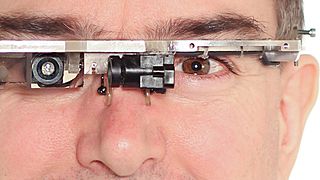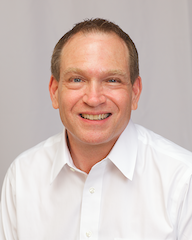A Quote by Brendan Iribe
Internally, we're focused on building our own technology, leveraging all the momentum that's out there around wearable computing and mobile computing and PC computing. But at the end of the day, all the code we've written and all the invention we've created has been focused on our own tech and our own products.
Related Quotes
Cloud computing means you are doing your computing on somebody else's computer. Looking ahead a little, I firmly believe cloud - previously called grid computing - will become very widespread. It's much cheaper than buying your own computing infrastructure, or maybe you don't have the power to do what you want on your own computer.
If you look through the history of wearables, I was named the father of wearable computing, or the world's first cyborg. But the definition of wearable computing can be kind of fuzzy itself. Thousands of years ago, in China, people would wear an abacus around their neck - that, in one sense, was a wearable computer.
If you look back over the history of computing, it started as mainframes or terminals. As PCs or work stations became prevalent, computing moved to the edge, and we had applications that took advantage of edge computing and the CPU and processing power at the edge. Cloud computing brought things back to the center.
Computers and computing are all around us. Some computing is highly visible, like your laptop. But this is only part of a computing iceberg. A lot more lies hidden below the surface. We don't see and usually don't think about the computers inside appliances, cars, airplanes, cameras, smartphones, GPS navigators and games.
Cloud computing is actually a spectrum of things complementing one another and building on a foundation of sharing. Inherent dualities in the cloud computing phenomenon are spawning divergent strategies for cloud computing success. The public cloud, hybrid clouds, and private clouds now dot the landscape of IT based solutions. Because of that, the basic issues have moved from 'what is cloud' to 'how will cloud projects evolve'.
I would like to emphasize strongly my belief that the era of computing chemists, when hundreds if not thousands of chemists will go to the computing machine instead of the laboratory for increasingly many facets of chemical information, is already at hand. There is only one obstacle, namely that someone must pay for the computing time.
One reason you should not use web applications to do your computing is that you lose control. It's just as bad as using a proprietary program. Do your own computing on your own computer with your copy of a freedom-respecting program. If you use a proprietary program or somebody else's web server, you're defenceless.
Microsoft and Dell have been building, implementing and operating massive cloud operations for years. Now we are extending our longstanding partnership to help usher in the new era of cloud computing, by giving customers and partners the ability to deploy the Windows Azure platform in their own datacenters.
India for sure is a mobile-first country. But I don't think it will be a mobile-only country for all time. An emerging market will have more computing in their lives, not less computing, as there is more GDP and there is more need. As they grow, they will also want computers that grow from their phone.


































